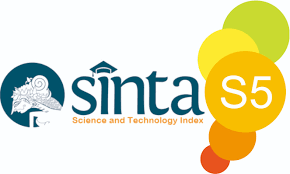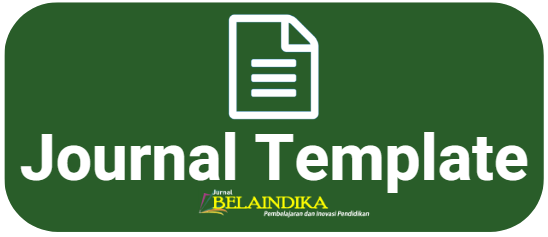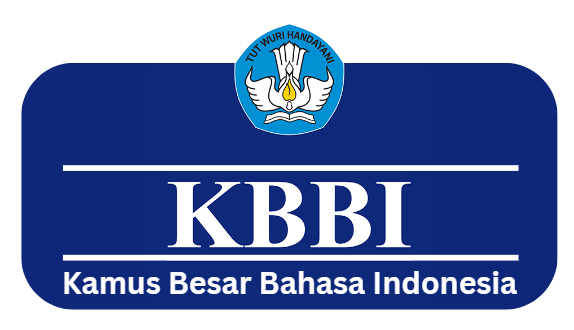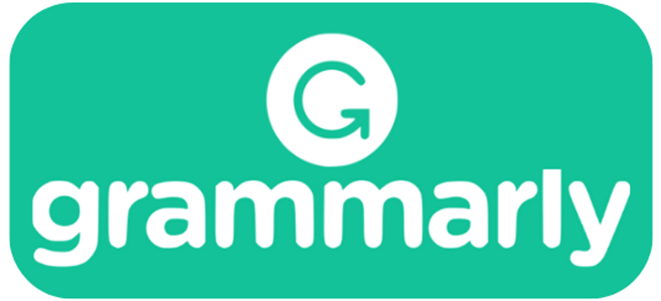Nilai Pendidikan Profetik dalam Filantropi Masyarakat Grenden Jember
Abstract
To date, traditional philanthropy has not been widely studied in the perspective of educational sciences. In fact, traditional philanthropy has the potential to be a reference for character education based on local wisdom. This study aims to interpret educational values in the traditional philanthropy of the Grenden society. Using an ethnographic design conducted throughout 2018-2020, this study succeeded in revealing a number of educational values from the philanthropic activities of the class of farmers, limestone miners, and fishermen. Further analysis reveals that the philosophical foundation and practical guidelines of philanthropy are based on the understanding of the Javanese Islam. The findings of this study contribute to the development of educational science, especially character education. This research offers a solution to the problem of character education that has been carried out by showing a role model first. Therefore, the implications of this research are in the form of criticism and correction of the implementation of character education that is not based on the values of local wisdom. Included in the object of this research criticism are the basics of character education offered by Thomas Lickona, and instead this research promotes the value of character education based on the wisdom of the Indonesian people as echoed by Ki Hadjar Dewantara.
References
Arif, M. (2008). Pendidikan islam transformatif. LKiS.
Bandura, A. (1977). Social learning theory. Prentice-Hall.
Berg, B. L. (2004). Qualitative research methods for the social sciences (5th ed.). Pearson Education.
Crain, W. (2014). Theories of development: Concepts and applications (6th ed.). Pearson Education.
Dyer, J. H., Gregersen, H. B., & Christensen, C. M. (2011). The innovator’s DNA: Mastering the five skills of disruptive innovators. Harvard Business School.
Gufron, A., Budiningsih, C. A., & Hidayati. (2017). Pengembangan pembelajaran berbasis nilai-nilai budaya Yogyakarta di Sekolah Dasar. Cakrawala Pendidikan, 37(2), 309–319.
Horikoshi, H. (1987). Kyai dan perubahan sosial. P3M
Judiani, S. (2010). Implementasi pendidikan karakter di sekolah dasar melalui penguatan pelaksanaan kurikulum. Jurnal Pendidikan Dan Kebudayaan, 16(3), 280–288
Jusuf, C. (2007). Filantropi modern untuk pembangunan sosial. Jurnal Penelitian Dan Pengembangan Kesejahteraan Sosial, 12(1), 74–84. https://doi.org/10.33007/ska.v12i1.621
Kemendiknas. (2011). Pendidikan karakter di sekolah menengah pertama. Kemdiknas.
Khoiron, M., & Wahyuningtyas, N. (2020, February). Revitalization of Social Studies Education: A Developmental Study Based on Dick and Carey Instructional Design. In International Conference on Social Studies and Environmental Issues (ICOSSEI 2019) (pp. 37-42). Atlantis Press. https://doi.org/https://dx.doi.org/10.2991/assehr.k.200214.007
Kohlberg, L. (1995). Tahap-tahap perkembangan moral (Terj. John de Santos dan Agus Cremes). Kanisius.
Masrifatin, Y. (2020). Konsep pendidikan profetik sebagai pilar humanisasi. Lentera: Kajian Keagamaan, Keilmuan, Dan Teknologi, 1(1), 274–282.
Miftakhuddin, M. (2018). Kecenderungan Putus Sekolah Difabel Usia Pendidikan Dasar di Jember. INKLUSI Journal of Disability Studies, 5(1), 95-114. https://doi.org/10.14421/ijds.050105
Miftakhuddin, M. (2020). Historiografi Korupsi di Indonesia: Resensi Buku Korupsi dalam Silang Sejarah Indonesia. Rihlah: Jurnal Sejarah dan Kebudayaan, 7(2), 168-172. https://doi.org/10.24252/rihlah.v7i2.11772
Miftakhuddin, M. (2019). Dedication of Unej Mengajar to Improve the Human Resources’ Quality in the Retarded Areas of Jember through a Participatory Approach. Proceeding of Community Development, 2, 454-466. https://doi.org/10.30874/comdev.2018.463
Miftakhuddin, A. M., & Zulfiati, H. M. (2019). Misconceptions between Social Studies and Social Sciences among Pre-Service Elementary Teachers. International Journal of Education, 12(1), 16-25. https://doi.org/10.17509/ije.v12i1.17514
Miles, M. B., Huberman, A. M., & Saldana, J. (2014). Qualitative data analysis: A methods sourcebook (3rd ed.). Sage Publication. https://doi.org/10.1080/0140528790010406
Nasir, M. A. (2019). Revisiting the Javanese Muslim Slametan: Islam, local tradition, honor and symbolic communication. Al-Jami’ah, 57(2), 329–358. https://doi.org/10.14421/ajis.2019.572.329-358
Rahardjo. (2017). Pengantar sosiologi pedesaan dan pertanian. UGM Press.
Roqib, M. (2013). Pendidikan karakter dalam perspektif profetik. Jurnal Pendidikan Karakter, 3(3), 240–249.
Saidi, Z. (2006). Kedermawanan untuk keadilan sosial. Piramedia.
Salirawati, D. (2021). Identifiksi problematika evaluasi pendidikan karakter di sekolah. Jurnal Sains Dan Edukasi Sains, 4(1), 17–27. https://doi.org/10.24246/juses.v4i1p17-27
Schreiber, J., & Asner-Self, K. (2011). Educational Research. John Wiley & Sons.
Solikhin, M. (2020). De-Radicalization through prophetic education in high school. Nadwa: Jurnal Pendidikan Islam, 14(1), 155–174. https://doi.org/10.21580/nw.2020.14.1.5707
Spradley, J. P., & McCurdy, D. W. (2012). Conformity and Conflict: Readings in Cultural Anthropology. Pearson Education.
Tamin, I. H. (2011). Peran filantropi dalam pengentasan kemiskinan di dalam komunitas lokal. Jurnal Sosiologi Islam, 1(1), 35–58.
Waston. (2018). Building peace through mystic philosophy: Study on the role of Sunan Kalijaga in Java. Indonesian Journal of Islam and Muslim Societies, 8(2), 281–308. https://doi.org/10.18326/ijims.v8i2.281-308
Copyright (c) 2021 Jurnal BELAINDIKA (Pembelajaran dan Inovasi Pendidikan)

This work is licensed under a Creative Commons Attribution-ShareAlike 4.0 International License.


_page-0001_-_Copy11.jpg)






